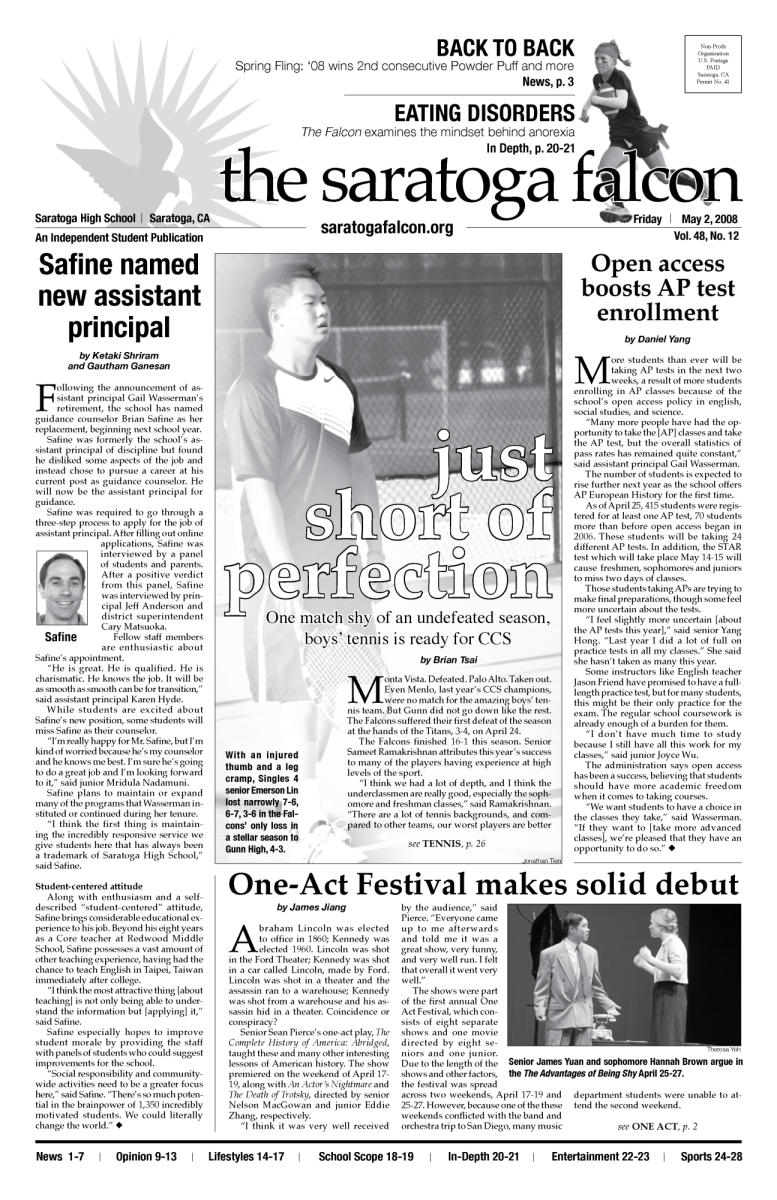Freshman Su Min Park was in the middle of a pool during a water polo game when suddenly, a shark burst out of the water next to her, its jaws widening to devour her whole. The beast looked exactly like the one from the movie “Jaws,” which Park had watched earlier that night. She concentrated, conjuring special powers to kill the shark. Just as Park was ripping the shark’s jaw open, she awoke to her dad’s voice calling out for her to wake up.
What Park was experiencing was a lucid dream — a state that only some people have regularly.
Lucid dreaming is generally understood to occur during Rapid Eye Movement (REM) sleep and is a phenomenon where people are aware they are dreaming. The abilities of lucid dreamers range from controlling basic elements inside their dreams — actions of themselves or others — all the way to being able to shape the whole plot of a dream.
In a 2004 study, German scientists attempted to grasp a better understanding of lucid dreams, determining that by the age of 19, as many as 51 percent of people had experienced a lucid dream, but the frequency decreased with age.
Very few studies have been able to qualify how many people regularly experience lucid dreams since lucid dreaming is hard to measure. Also contributing to the mystery surrounding lucid dreaming is that its cause is unknown. An article in the Huffington Post claims that about 20 percent of people have lucid dreams at least once per month.
For her part, Park says she has lucid dreams almost every night.
Likewise, senior Raveena Rao says she has lucid dreams 60-70 percent of the time, but she can only control certain aspects like small details rather than the entire dream itself.
“People have this misconception that since you are able to control your dreams, you’re always going to dream exactly what you want,” Rao said. “But in my case I have a dream, and within that theme of the dream I’m able to alter what goes on within that dream. I’m usually not able to change the entire dream, just what actions or things happen in those dreams.”
The amount of lucidity experienced can vary greatly from person to person, according to psychology teacher Hana Chen. She said that some lucid dreamers are only able to shape basic elements in their dreams such as bits of conversation, while others have full control over their lucid dreams.
“Some people can say ‘tonight I want to dream about xyz’ and control the full plot of their dream from start to finish,” Chen said.
Currently, explanations for the cause of lucid dreaming are almost purely theoretical. Chen said that lucid dreaming may be acquired or genetic, but to at least some extent, it seems to be a learnable skill.
According to an article in Psychology Today, in a study conducted by the University of Adelaide, participants repeated a mantra each night — “the next time I am dreaming, I will remember that I am dreaming” — before they went to sleep. Participants who went to sleep within five minutes after repeating this mantra experienced an 86.2 percent increase in the frequency of lucid dreaming.
Not surprisingly, the internet abounds with advice on how to experience lucid dreaming, including both websites and videos some with more than 3 million views.
Since dreams themselves are hard to find a reason for, lucid dreams are as equally shrouded in mystery.
The self-reporting aspect of dreaming tends to make studying it unscientific, Chen said. “Dreaming is super hard to measure because you could wake up and be like ‘I had a dream about unicorns!’ and I don’t really know if you did or you didn’t,” she said.
One theory is that lucid dreaming could be advantageous if dreams are a practice scenario for real-life situations, Chen said. For example, if a lucid dreamer was fighting with a peer, they could control their dream and have a conversation with that person. This would help prepare them for the same discussion in real life.
But now all parts of lucid dreaming are positive. Rao said she can get caught in her lucid dreams sometimes.
“Waking up from a lucid dream is sometimes difficult because you feel this sense of pressure and it’s hard to open your eyes,” said Rao. “Say it’s a nightmare and I’m trying to get out of the situation. Even though I know I’m dreaming, it’s very hard to wake up.”
Chen said that some lucid dreamers can develop a syndrome called “fantasy prone personality disorder,” in which they dream so extensively that it is hard to differentiate real-life from dreams. A person with this disorder finds it hard to stay out of the “fantasy” world.
“Sometimes you’ll have a memory and you’ll think like, ‘Wait is that a dream or was that a real memory from my waking life?’” Chen said.
For Park, the main downside of lucid dreaming is that it sometimes results in a night of restless sleep.
“I like lucid dreaming because it’s entertaining, but sometimes I feel like lucid dreaming is tiring because my brain is still conscious so it’s not really resting,” Park said. “After I lucid dream I get really tired, so when I wake up I still want to sleep.”



























